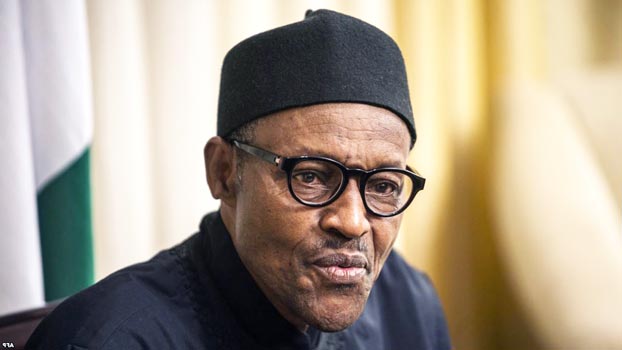
Nigerian president, Muhammadu Buhari returned to the country on Saturday evening after a 10 working day vacation to the United Kingdom. His plane landed at the Abuja International Airport where he was received by top government officials.
In his first interview after returning, Buhari addressed the issue of corruption and responded to political ongoings in the country during his absence. He said he was ready to jail corrupt politicians as has long been expected of him.
“We are going to jail more of the thieves that brought the economic problems to the country. I think this is being expected of me and I will do it,” he told reporters at the Presidential Villa.
Corruption is seen as one of the major setbacks in governance in Nigeria, with a number of former regime officials currently in court for various acts of financial malfeasance which the opposition has often dismissed as political witch hunt.
On the issue of National Assembly by-elections, defections and counter-defections of top lawmakers across parties as well as the invasion of the National Assembly complex by security operatives, Buhari said they all constituted part of the beauty of Nigerian politics.
“I think that should be appreciated as the beauty of democracy, let people choose which party they want to belong to but let them make sure that they have empowered their constituencies by educating them on voter registration exercise.
“And make sure that they’ve got their permanent voter’s cards and that they use their rights as Nigerians to vote whoever they like, across ethnicity and religion, that is the beauty of democracy in Nigeria, this is what I am hoping to see,” he added.
While Buhari was away on vacation, an armed blockade on the premises of the legislature by operatives of the Department of State Services (DSS) led to the firing of its Director General, Lawal Daura by Vice President Yemi Osinbajo, who was Acting President.
Osinbajo had also directed the immediate overhaul of the anti-robbery unit of the nation’s police, an order which was immediately carried ouf by the country’s Inspector General of Police, Ibrahim Idris, who announced measures to implement the presidential directive.
There had been an online campaign for several months against some of the activities of the then Special Anti-Robbery Squad (SARS) of the police.

Tinubu Confers Posthumous National Honour On Late Lagbaja
Nigeria’s Inflation Rate Climbs To 33.88% In October 2024
Supreme Court Upholds EFCC’s Legitimacy, Rejects States’ Challenge
NJC Recommends Retirement, Suspends Judges Over Misconduct